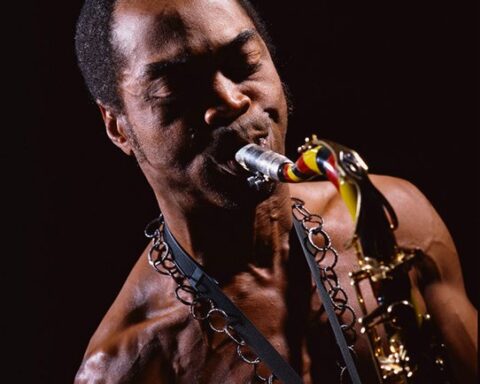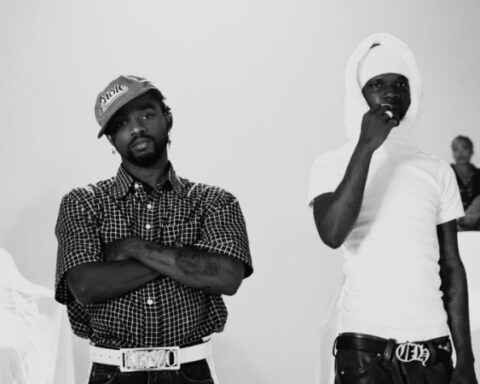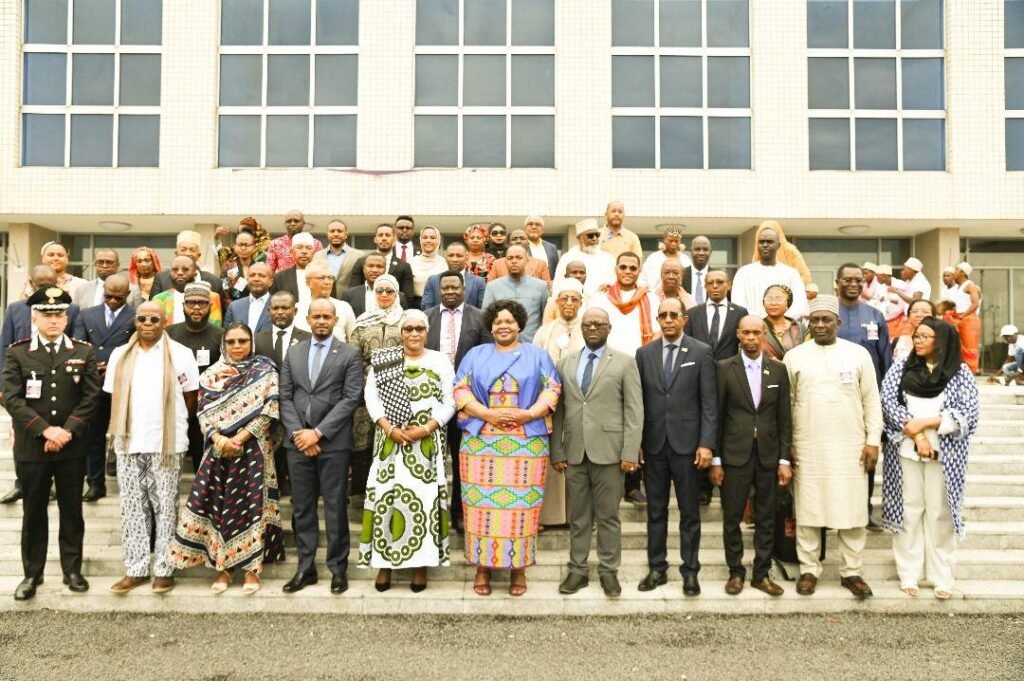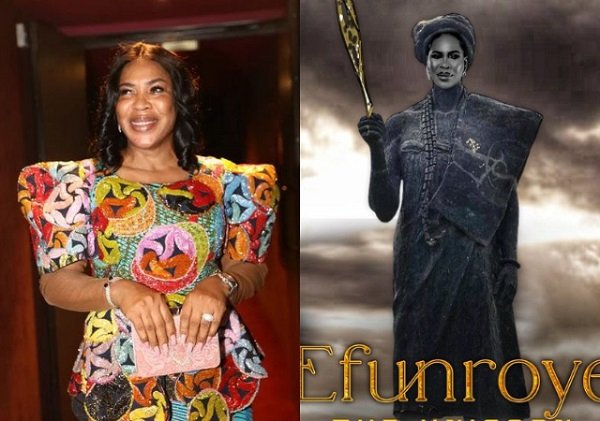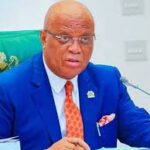Palm wine which has become another name for highlife took its root from some of the sociological events of the 1920s. The music was mostly played in clubs where palm wine was the alcohol served. Mostly it was heard in clubs along the Marina area of Lagos where sailors and crew men constituted the bulk of the clientele.
ESTABLISHING melodic tunes as well as serving as vehicle for thematic improvisation, the guitar has always been the soul of highlife, its main ingredient. Not only that. In configuring the aggregational make-up of highlife, the guitarist was usually the most prized person. He was the most highly paid because of the role that the instrument used to play in the music.
The importance of the palm wine guitar can be measured by his input as an individual. Whereas, he alone can constitute a band that is capable of propelling a whole audience to the dance floor, even more fashionable instrumentalists such as trumpeters, saxophonists, trombonists and the like who are called front liners, cannot hold an audience.
The guitarist can double on vocals and the instrument, sing the melody and even take vocal choruses as he plays the guitar, venture into solo opportunities before coming back to the melodic theme to end the song. Indeed, the guitarist, on his own, can create a protean orchestral sound.
Early highlife used to be essentially guitar-dominated, going by the tradition that took place simultaneously in Nigeria and Ghana with the introduction of the instrument to the west coast of Africa. In Ghana were the likes of E.k NYame, Akwaboa, K.Gyasi and of course with the likes of Ralph Amarabem, Okonkwo Adigwe, Apollo, Paul Ede and Israel Njemanze who was murdered in cold blood by his sidemen and a few other accomplices in the 50s; and whose decomposed body was found in dismembered pieces along the Railway line at Idioro, Lagos. Other Nigerians are IrewolerdeDengewho started by singing and playing the guitar as he walked the streets of Lagos, Tunde King, Ayinde Bakare, Ambrose Campbell, Tunde Nightingale, J.O. Oyesiku, Julius Araba, Orlando Owoh, Fatai Rolling Dollar among others.
However, palm wine guitar stylists of more recent vintage held big band highlife together in the 50s and 60s, among them Akani who was the rhythmic force behind Victor Olaiya’s All Stars, Apaipah Jay who made his fame with AdeoluAkinsanya’s Western Toppers band, Ralph Amarabem of The Pea Cocks who also had a remarkable stint with Rex Lawson, Victor Uwaifo, Fred Coker, Mike Enahoro, Alaba Pedro, an ex- Roy Chicago‘s Rhythm Dandies star who is still relevant. This new generation of palm wine guitar stylists in Nigeria were influenced by by such Ghanaian virtuosos as Eboh Tailor, Kwesi, Arthur Benny and Stan Plange who unleashed the plethora of palm wine sounds at Ambassador Hotel in the early 60s and pushed audiences into dance –party ecstasy within the context of Chief Bill Friday’s Ambassador Down beats at Yaba, Lagos in such hits as Bonsue and Ropopo.
Almost all the instruments of highlife music orchestras had their solo opportunities. No other percussionist had the ability to thrill sessions of dance floor communities on every night stand than conga player, Tony Odili of Rex Lawson’s band. Odili who is still practicing this art enacted this same feat in 1998 on the water Front Garden of the Goethe Institut,Ozumba Mbadiwe Street,Victoria island Lagos. This was on the occasion of the Great Highlife Party, one of the very initial editions master – minded by the late Goethe Institut director, Renate Albertsen – Marton. Odli performed with the Professional Seagulls led by David Bull, a great guitarist who took over from Ralph Amarabem, perhaps the greatest of them all –in Rex Lawson’s band.
Palm wine which has become another name for highlife took its root from some of the sociological events of the 1920s. The music was mostly played in clubs where palm wine was the alcohol served. Mostly it was heard in clubs along the Marina area of Lagos where sailors and crew men constituted the bulk of the clientele. One of the most proficient p
alm wine groups of those early days was the Nigerian Jolly Boys Orchestra which was held in high esteem because of the band’s high sense of instrumentation.
Hitherto, a highlife trend called Asiko, performed by loosely configured outfits ruled a scene where social commentary took preeminence over the music itself. Asiko had this musical way of documenting remarkable events in endless stories that were told by singers. One of the early asiko hits came in 1928 when the first aero plane touched down in Lagos. There was also the gory tale about Doctor Adeniyi Jones, a Saro house owner and medical practitioner who went to collect rents from a poor crew man who was his tenant. The tenant who was apparently in a sad mood and terrible frame of mind reacted violently and began to chase his landlord with a machete. The hits around these two incidents were recorded as Londoniluoba, meaning London is the city of the king; and Dokita to wale sin owo, meaning the doctor who came to collect rents.
While this storytelling trend woven around real life situations and calledasikowas popular, Palm wine was regenerated and given some professional bite by the Jolly Boys Orchestra which featured such talented musicians as Thomas Omotajo, Akanbi Bale, Abiodun Oke popularly known as Buster Hughes, Sunday ‘Harbour Giant,’ leader of the band who played the penny whistle, Coffie Mando and Ambrose Campbell who projected the band on vocals and guitar to become the king of palm wine highlife. He not only established the West African Rhythm Brothers in London in 1947 with a group of ex-service men and students, creating a new Africanised dance music in response to the smooth Western bid bands, he also took highlife to international level with the inclusion of multi – national musicians thereby introducing multi – cultural fusions into the music.
However, the instruments which the Jolly Boys Orchestra created early palm wine music were three guitars, one mandolin, one samba drum, a triangle and penny whistle. The band recorded many hits, among them F.B.Godo, a song in praise of the popular Lagos elite, In the public interest of the boys recorded on HMV 117 and Atari Ajanaku which was the group’s biggest hit.
The best of highlife is driven by and energized by the ‘palm wine’ guitar.
(First published in The Guardian, July 16, 2001)
Idonije, veteran broadcaster and music writer, is author of Dis FelaSef: A memoir; the Great highlife Party and, All That Jazz)
Follow us on all social media platforms @dailyquery for news and analyses around the globe.

